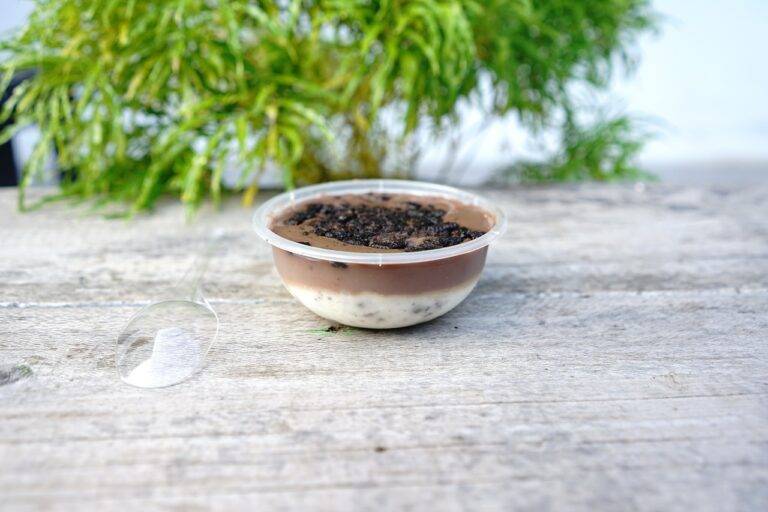The Health Benefits of Fenugreek: Balancing Blood Sugar and Hormones: Betbook250 com login, Reddyanna247, Play lotus365.com login
betbook250 com login, reddyanna247, play lotus365.com login: Fenugreek is a versatile herb that has been used for centuries in various cuisines and traditional medicine practices. In addition to adding flavor to dishes, fenugreek has been found to offer numerous health benefits, particularly in balancing blood sugar levels and hormones.
Balancing Blood Sugar Levels
One of the most well-known health benefits of fenugreek is its ability to help balance blood sugar levels. Several studies have shown that fenugreek seeds can improve insulin sensitivity and reduce blood sugar levels in people with diabetes. This can be attributed to the high fiber content in fenugreek, which slows down the absorption of sugar in the bloodstream.
Furthermore, fenugreek contains compounds called trigonelline and galactomannan, which may help to stimulate the release of insulin and increase the uptake of glucose by cells. These effects can be especially beneficial for individuals with type 2 diabetes, as they often have issues with insulin resistance.
Hormone Balance
In addition to balancing blood sugar levels, fenugreek has also been shown to help regulate hormones in the body. One study found that fenugreek supplementation can increase testosterone levels in men, which may have positive effects on muscle mass, energy levels, and libido. Fenugreek may also help to balance estrogen levels in women, which can be beneficial for conditions such as menopause and polycystic ovary syndrome (PCOS).
Furthermore, fenugreek contains phytoestrogens, which are plant compounds that mimic the effects of estrogen in the body. These compounds may help to alleviate symptoms of menopause, such as hot flashes, night sweats, and mood swings. Additionally, fenugreek may help to reduce symptoms of PCOS, such as irregular periods, acne, and weight gain.
Other Health Benefits
In addition to balancing blood sugar levels and hormones, fenugreek offers a variety of other health benefits. Some studies have suggested that fenugreek may help to reduce cholesterol levels and improve heart health. The fiber in fenugreek can help to lower cholesterol levels by binding to bile acids and removing them from the body.
Fenugreek may also have anti-inflammatory effects, which can be beneficial for conditions such as arthritis, asthma, and digestive disorders. Some studies have suggested that fenugreek may help to reduce inflammation in the body and alleviate symptoms of these conditions.
Furthermore, fenugreek is rich in vitamins and minerals, including iron, magnesium, and vitamin B6. These nutrients are important for overall health and may help to boost the immune system, support bone health, and improve energy levels.
How to Incorporate Fenugreek into Your Diet
There are several ways to incorporate fenugreek into your diet to reap its health benefits. Fenugreek seeds can be ground and added to curries, soups, and stews for a unique flavor. You can also steep fenugreek seeds in hot water to make a tea or add them to smoothies for a nutritional boost.
Fenugreek leaves are also commonly used in cooking and can be saut饤 with garlic and spices for a nutritious side dish. Additionally, fenugreek supplements are available in capsule form for those who prefer a more convenient option.
It is important to note that fenugreek may interact with certain medications, so it is always best to consult with a healthcare provider before adding fenugreek to your routine, especially if you are pregnant, breastfeeding, or have a medical condition.
In conclusion, fenugreek is a powerful herb that offers a wide range of health benefits, particularly in balancing blood sugar levels and hormones. By incorporating fenugreek into your diet, you can support your overall health and well-being.
—
**FAQs**
**1. Can fenugreek help with weight loss?**
Some studies have suggested that fenugreek may help with weight loss by reducing appetite and slowing down the absorption of fat in the body. However, more research is needed to determine the effectiveness of fenugreek for weight loss.
**2. Are there any side effects of taking fenugreek?**
While fenugreek is generally considered safe for most people when consumed in moderate amounts, some individuals may experience side effects such as digestive issues, allergic reactions, and changes in body odor. It is always best to consult with a healthcare provider before taking fenugreek supplements.
**3. How can fenugreek be used topically for skin health?**
Fenugreek seeds can be ground into a paste and applied topically to the skin to help with conditions such as acne, eczema, and inflammation. The anti-inflammatory properties of fenugreek may help to soothe irritated skin and promote healing.
**4. Is fenugreek safe for children to consume?**
Fenugreek is generally safe for children when consumed in small amounts as part of a balanced diet. However, it is always best to consult with a pediatrician before giving fenugreek to children, especially if they have any underlying health conditions.
**5. How long does it take to see the effects of fenugreek on blood sugar levels and hormones?**
The effects of fenugreek on blood sugar levels and hormones may vary from person to person. Some individuals may see results within a few weeks of taking fenugreek supplements, while others may take longer to experience noticeable changes. It is important to be consistent with your fenugreek intake and monitor your progress over time.







